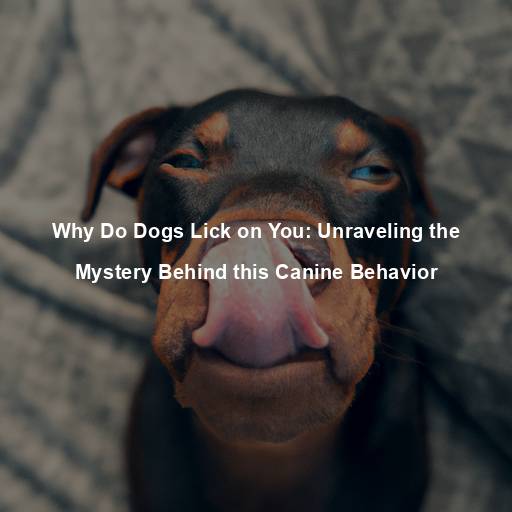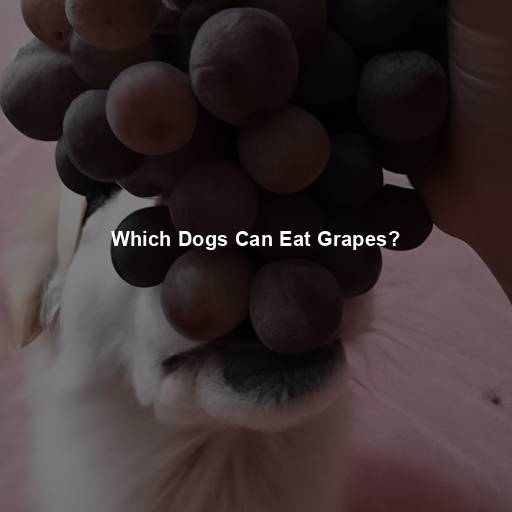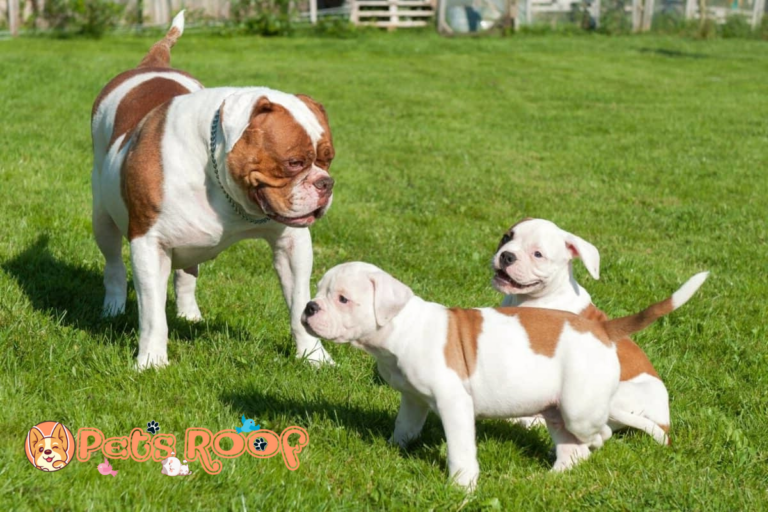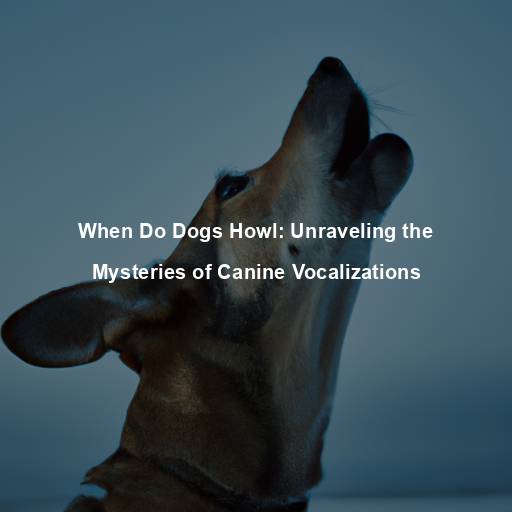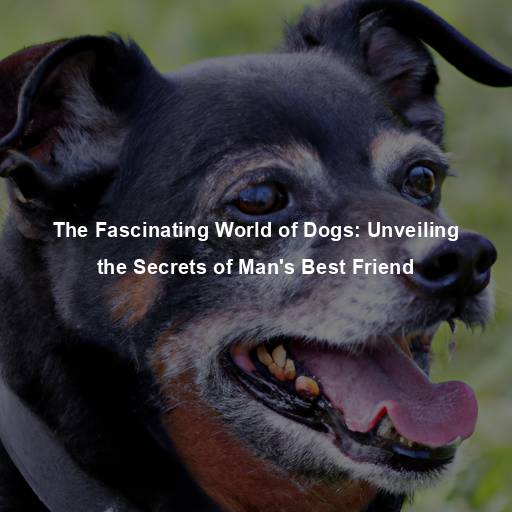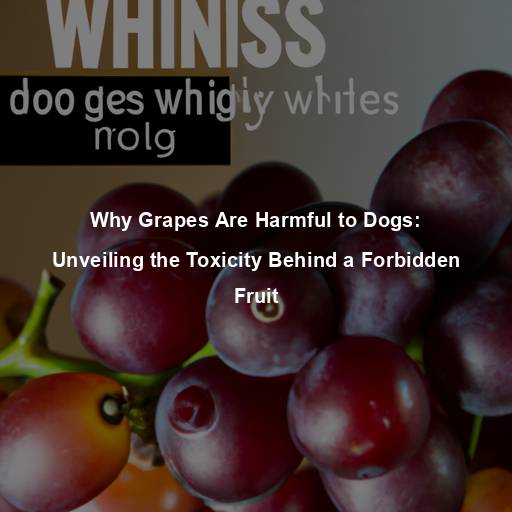Why Do Dogs Lick on You: Unraveling the Mystery Behind this Canine Behavior
Last Updated on August 7, 2023 by Evan
Contents [hide]
Understanding the Language of Licks
Our beloved furry friends, dogs, never cease to amaze us with their quirky yet lovable mannerisms. One such behavior that has left us pondering is their fondness for licking us. It’s a phenomenon that sparks both curiosity and wonder – why do they do it? Through this captivating piece, we will embark on a journey into the captivating world of canine behaviors, shedding light on the intriguing reasons behind this sweet and sometimes perplexing act of affection.
A Glimpse into Instinctive Behavior
At its core, licking is an innate behavior deeply rooted in a dog’s genetic makeup. Puppies, from the moment they are born, are licked by their mother as a means of cleaning and nurturing them. This early contact with licking establishes a connection between licking and feelings of comfort and security. As dogs grow, they carry this instinctive behavior into their interactions with humans.
Expressing Affection and Bonding
When it comes to our four-legged companions, they have a unique and puzzling way of expressing their affection. Ever wondered why dogs just can’t keep their tongues to themselves? Well, it turns out that licking serves as an intricate display of love and loyalty. By showering you with slobbery kisses, your furry friend is not only seeking physical contact but also releasing feel-good hormones that bring joy and satisfaction to their canine hearts.
Communication and Social Significance
Believe it or not, licking is also a form of communication for dogs. Just as humans use verbal language and body signals to convey messages, dogs use their tongues to communicate various meanings. For instance, a dog may lick your face as a way of seeking attention or playfully inviting you to engage in activities. Licking can also be a submissive gesture, indicating that your dog recognizes you as the dominant member of the pack.
Grooming and Pack Behavior
In the untamed realm of the animal kingdom, canines reign as pack-oriented creatures, thriving on a structured social fabric. Within this intricate tapestry, grooming emerges as a vital cog, upholding sanitary standards and cementing social ties. Consequently, when a dog extends its gentle tongue towards you, it might be a mirror reflection of the grooming ceremonies enacted between their fellow pack members. Beyond a mere act of acceptance, this peculiar behavior serves as a surrogate grooming ritual, bridging the gap between species with each tender lick.
Taste and Exploration
Dogs, those fascinating creatures, possess an uncanny ability to decode the world around them through their oh-so-unique senses. One such peculiar behavior, oh yes, we’re diving into the realm of licking, where dogs embark on an expedition to explore their surroundings in the most unexpected way. Picture this, dear readers: a pup’s tongue making contact with your skin, resulting in a rather perplexing notion that your taste, scent, and yes, even emotions are being meticulously cataloged within their canine database. How fascinating, you may ask?
Stress Relief and Soothing Behavior
It’s fascinating how dogs find solace in the simplest of actions – licking. From soothing their nerves in tense moments to finding tranquility in anxious situations, dogs have a unique way of self-soothing, just like humans do with their own quirky behaviors. Whether it’s nail-biting or hair-twirling, we all seek that release of tension. For our furry friends, licking serves as their rhythmic remedy, releasing those comforting endorphins that ease their worries and provide a sense of security.
Medical and Nutritional Reasons
Lick-a-thon! Lapping up love or lingering health woes? It’s a doggie dilemma! While tongue action is usually par for the course, relentless licking could signal deeper problems.
Training and Behavioral Conditioning
One interesting aspect to consider is that licking in dogs can actually be influenced by their past experiences and training. When dogs receive praise or rewards for licking, they tend to continue doing it. Conversely, if they face negative repercussions for their licking, they might learn to suppress or redirect this behavior. It’s a complex interplay that adds another layer of intrigue to understanding our furry friends’ licking habits.
Embrace the Lick: A Symbol of Love and Connection
Discovering the true essence behind a dog’s seemingly innocent act of licking can leave us both intrigued and perplexed. With each swipe of their tongue, these canines reveal a multitude of intricate emotions and intentions, ranging from affectionate gestures to instinctual communication. Unveiling the fascinating world of canine behavior, we delve into the depths of the science behind the mysterious realm of dog licking. Join us as we explore the complexities, meanings, and undeniable charm of this lovable habit that helps strengthen the bond between humans and their four-legged companions.
Unraveling the Canine Sense of Taste
Have you ever wondered why your furry companion showers you with licks? Unraveling the mystery behind this canine phenomenon requires a deep dive into their unique taste perception. Unlike us, dogs possess taste buds that are vastly different – only a fraction of what we possess, and not quite as sensitive. This intriguing discovery unveils a fascinating twist: licking may not be solely about savoring flavors, but rather about the tactile experience and the bonds it forges between human and hound.
Exploring the Power of Pheromones
In the fascinating realm of animal communication, there exists a hidden language encoded in the form of pheromones. With their extraordinarily sensitive olfactory senses, dogs possess an unparalleled capacity to discern even the most subtle shifts in these chemical signals. Beyond merely gathering the essence of your scent through a seemingly innocent lick, dogs are actually absorbing a myriad of pheromones that hold the power to convey profound insights about your inner world – your emotions, your health, your overall state of being. Thus, this seemingly simple act of licking emerges as a remarkable avenue for dogs to delve into the intricate tapestry of your physical and emotional existence.
The Influence of Early Socialization
The importance of early socialization in a dog’s development cannot be overstated, particularly when it comes to their penchant for licking. Puppies who are exposed to a wide range of social experiences during their crucial formative weeks are more likely to develop a penchant for licking as they mature. The reason behind this lies in the reinforcement of positive associations between licking and pleasant outcomes, such as affection, attention, and rewards, during this critical period of their lives. The extent of socialization a puppy receives can truly shape their behavior and set the stage for their licking tendencies in the long run.
Licking as a Display of Submission
In a canine social hierarchy, submission is an essential component of maintaining harmony within the pack. When a dog licks you, it can be seen as a submissive gesture, acknowledging your role as the dominant member of the pack. By engaging in this behavior, your dog is showing respect and deference to you, solidifying the bond between you as the leader and them as a loyal follower.
Addressing Potential Misconceptions
While licking is generally a harmless and endearing behavior, it is essential to address a common misconception: that dogs lick to establish dominance over their human companions. This belief stems from outdated dominance theory in dog training, which has been widely debunked by modern animal behaviorists. Dogs do not lick as a way to dominate their owners, but rather to express affection, seek attention, and reinforce the social bond they share.
Understanding Excessive Licking
While the occasional lick is normal and even expected, excessive licking can be a cause for concern. If your dog obsessively licks themselves, objects, or even you, it may indicate an underlying issue that requires attention. Excessive licking can be a sign of anxiety, boredom, pain, allergies, skin irritation, or even gastrointestinal problems. If you notice persistent or compulsive licking behavior in your dog, it is crucial to consult with a veterinarian to identify and address the underlying cause.
Respecting Boundaries and Training Techniques
Licking, oh, the sweet and sometimes perplexing display of affection from our beloved furry friends. While it’s enticing to interpret every lick as a pure expression of love, it’s crucial to set boundaries and train our dogs to discern when licking is appropriate or not. By employing consistent training techniques and rewarding positive behaviors, we can guide our pups to curb excessive licking or redirect their enthusiasm towards suitable objects or surfaces. This way, we can preserve the pure delight of a well-mannered lick between us and our faithful companions.
Embrace the Language of Licks
Discovering the enigmatic world of canine licks illuminates the intricate nature of their communication skills, honed through centuries of evolutionary development. Unveiling the motivations driving this behavior not only strengthens the human-canine bond, but also deepens our understanding of our four-legged companions. Whether it’s a dainty lick on your palm or a boisterous face bath, embracing this form of communication serves as a powerful testament to the love, loyalty, and unwavering companionship that dogs wholeheartedly bestow upon us. So, next time you’re bestowed with a flurry of affectionate licks, savor the profound connection and bask in the incomparable joy of a dog’s unwavering love.
Maintaining Proper Hygiene
Licking plays a vital role in a dog’s grooming routine and helps them maintain proper hygiene. Dogs use their tongues to clean themselves, removing dirt, debris, and excess fur. When they lick you, they might be extending their grooming behavior to include you as part of their pack. This act of grooming not only keeps your dog clean but also reinforces the bond and trust between you.
Promoting Healing and Wound Care
The saliva of dogs contains certain enzymes and antibacterial properties that can aid in the healing process. While the idea of a dog licking a wound may seem unappealing, their saliva can help clean the area and prevent infection. Of course, it is crucial to strike a balance, as excessive licking can impede the healing process. If your dog has a wound, consult with a veterinarian to determine the appropriate level of licking and additional care required.
Addressing Nutritional Needs
Believe it or not, licking can also serve a nutritional purpose for dogs. Puppies, in particular, may lick their mother’s mouth in an attempt to stimulate her to regurgitate food for them. This behavior is rooted in their survival instincts and the need for nourishment. While adult dogs may not rely on this behavior as heavily, the act of licking can still be associated with the anticipation of receiving food or treats.
Providing Comfort and Soothing
It’s no secret that dogs are masters of empathy, effortlessly easing our troubles with their gentle presence. That oh-so-familiar lick, an ancient canine gesture, holds a remarkable purpose: to offer solace and reassurance in a whirlwind of emotions. Believe it or not, the act of licking has a biochemical effect on our four-legged friends, triggering a release of endorphins that promotes a tranquil state of mind. So, next time you find yourself in a stressful or melancholic moment, remember that your furry companion is there, ready to offer comfort in their wonderfully enigmatic way.
Addressing Behavioral Issues
Sometimes, when our furry friends go into overdrive with their tongue action, it’s not just a harmless quirk. Excessive licking could actually signal deeper behavioral issues that deserve our attention and intervention. Whether it’s anxiety or plain old boredom driving them to this compulsive behavior, it’s important to dig deeper and get to the root cause. By seeking guidance from a dog trainer or animal behaviorist, we can offer the right outlets and stimulation to help our dogs overcome these perplexing behaviors.
Considerations for Allergy Sufferers
Although typically considered innocuous, one should exercise caution when it comes to dog licking due to potential allergic ramifications. Certain proteins found in a dog’s saliva can trigger sensitivities or even full-blown allergies. Should you encounter symptoms like itching, redness, or any other unfavorable reactions post dog licks, seeking medical advice is highly advised. Healthcare professionals can offer valuable assistance in effectively dealing with allergies and suggest suitable methods to minimize exposure.
Respecting Personal Boundaries
It is essential to establish and respect personal boundaries when it comes to dog licking. While some individuals may enjoy the affectionate licks, others may find it uncomfortable or intrusive. If you are not comfortable with your dog licking you, it is crucial to communicate this effectively through consistent training and positive reinforcement. Redirecting their behavior to alternative forms of affection, such as gentle petting or cuddling, can help maintain a healthy and respectful relationship.
The Beautiful Complexity of Canine Licking
The act of dogs licking on you is a multifaceted behavior that encompasses various purposes and meanings. From expressing affection and bonding to promoting hygiene and even addressing their own needs, dogs use licking as a powerful form of communication. By understanding the intricacies of this behavior, we can deepen our connection with our furry friends and provide them with the love and care they deserve.
As devoted caretakers of our beloved pets, we must be attuned to their mysterious ways, decoding the enigma of their behaviors to safeguard their welfare and ensure their contentment. In the intricate symphony of our connection with our four-legged buddies, let us embrace the dialect of licks, allowing it to embody the profound and unparalleled bond that intertwines our lives with theirs. From a slobbery kiss to a delicate caress on our fingertips, let the profound language of licks resonate within us, a constant testament to the unbounded elation and unwavering affection that our canine companions bestow upon us.
FAQs – Why Dogs Lick on You
Why do dogs lick on you?
Dogs lick for various reasons, and it is their way of communicating with humans. One common reason is that they are showing affection. Licking is a natural behavior for dogs to express their love and bond with their owners. It is their way of saying, “I trust and care for you.” Additionally, dogs may lick as a way of seeking attention or to get you to notice them. It can also be a learned behavior from puppyhood, as dogs often learn that licking can lead to positive outcomes like treats or playtime.
Is a dog’s licking a sign of submission?
Yes, in many cases, a dog licking you can be a sign of submission. Licking can be a canine behavior displaying respect and acknowledgement of your authority. Dogs have an instinctive understanding of hierarchy, and by licking you, they are showing their obedience and submission to you as their pack leader. This behavior is more prevalent in some breeds, as they have a stronger instinct for pack dynamics.
Could licking indicate a health problem in dogs?
While occasional licking is usually harmless, excessive or obsessive licking can sometimes indicate an underlying health issue. Allergies, skin infections, or gastrointestinal problems can cause dogs to excessively lick themselves or their owners. If you notice your dog excessively licking, it is a good idea to consult with a veterinarian to rule out any medical conditions that may need attention.
Can dog licking transmit diseases to humans?
It’s no secret that dogs love to shower us with their slobbery kisses, but what about the bacteria lurking in their saliva? While it’s true that dogs’ mouths harbor some bacteria, the chances of getting sick from their licks are pretty slim. The majority of these microbes are tailored specifically for their furry inhabitants and pose little threat to us humans. Nevertheless, being mindful of hygiene after receiving a canine snuggle session is still crucial, particularly if you have any cuts or a weakened immune system. Remember to give the area a good wash with soap and water to keep any potential risks at bay.
How can I discourage my dog from excessive licking?
When your beloved canine companion becomes a bit too enthusiastic with their licking, it can certainly raise an eyebrow or two. However, fear not, for there are a myriad of strategies you can implement to curb this peculiar behavior. One approach is redirecting their focus towards a chew toy or bone, offering a delightful distraction. Consistency is key, so consider integrating training techniques like the “leave it” or “no lick” command. Positive reinforcement will work wonders, so be sure to reward your furry friend when they exhibit the desired behavior. Lastly, regular grooming, attending to their oral health, and addressing any underlying medical concerns will go a long way in taming their insatiable licks. Enjoy your harmonious bond with your pup!

